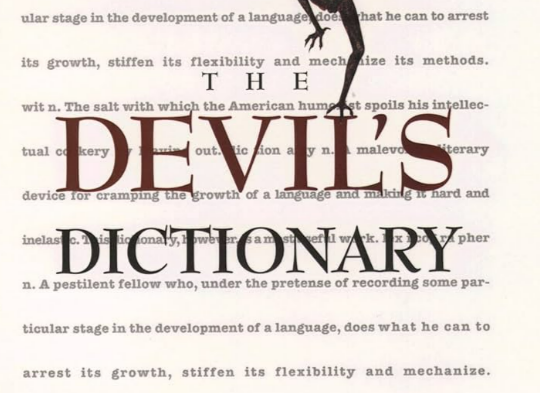Chapter P
byChapter P opens with Bierce’s treatment of Pain, which he describes not merely as a physical sensation but as a reminder of life’s imperfection. It is framed not as something to avoid, but something that teaches—unwanted yet often more honest than pleasure. Bierce argues that pain, unlike happiness, demands attention and shapes behavior. In his view, discomfort is more instructive than joy, serving as a sobering influence on human pride. Through this, pain is elevated from nuisance to necessary mirror.
He follows with Painting, portrayed less as an art form and more as a decorative tool, often used to mask the truth rather than reveal it. While praised as culture, Bierce suggests much of what’s labeled artistic is actually ornamental pretense. He invites readers to consider whether beauty in art is always sincere, or if it’s a shield for shallow imitation. This definition turns aesthetic appreciation into a performance of taste, not a genuine connection with meaning. Bierce’s satire urges skepticism toward cultural vanity.
Patience is reduced to a passive virtue that delays anger without eliminating it. Bierce calls it a temporary suspension of frustration, not a solution but a postponement. His perspective challenges the belief that patience is a strength, suggesting instead it is a mask for suppressed resentment. He highlights how society often praises endurance not because it is noble, but because it avoids conflict. This view questions whether tolerance is truly virtuous or just convenient.
In Patriotism, Bierce goes further, describing it as a form of collective vanity—loyalty that expects applause. Rather than a pure love for one’s country, he frames it as a political emotion often exploited by leaders. By linking patriotism to obedience and pride, he questions how easily national loyalty becomes a tool for control. This definition dismantles idealism with blunt realism, asking if love of country is any more pure than love of self.
He approaches Peace with irony, calling it a condition so unnatural that it only arises from preparation for war. Bierce suggests that nations don’t maintain peace by virtue but by threat. True peace, he implies, is never freely chosen—it’s negotiated with the shadow of violence. This cynical view sees peace as a pause in conflict rather than its opposite, undercutting the romantic view of diplomatic harmony. It presents global stability as a tense balance of weapons, not goodwill.
In Perseverance, Bierce offers a subtle critique, describing it as continued effort long after others would have shown better judgment. It’s not framed as strength, but stubbornness made noble by public admiration. His commentary questions the line between tenacity and delusion. He argues that what we celebrate as perseverance may sometimes be foolishness that survives scrutiny. Through this lens, persistence becomes a performance for others, not a personal virtue.
With Philosophy, Bierce mocks the discipline as a method of arguing in circles while appearing profound. He suggests philosophers are masters at using language to obscure uncertainty, not uncover truth. The entry challenges the assumption that philosophical inquiry leads to wisdom, proposing instead that it often ends in confusion. This definition reframes thinkers not as seekers of knowledge but as craftsmen of ambiguity. His wit here exposes the theatrical nature of intellectual authority.
Pity receives an especially sharp definition—it’s labeled a feeling of sorrow for someone else that subtly affirms your own superiority. Bierce suggests pity is not selfless, but a power play cloaked in sympathy. The moment one feels pity, he argues, they place themselves above the person they claim to care for. This view repositions compassion as condescension, asking whether empathy can ever truly be free of ego.
In Bierce’s hands, Politics is stripped of idealism. He defines it as the conduct of public affairs for private advantage, reducing noble rhetoric to transactional motives. Power is portrayed not as service, but as self-enrichment performed under the guise of leadership. Bierce doesn’t just critique corrupt politicians—he dismantles the system that enables them. His view is that governance rarely aligns with the public good unless it happens to benefit those in power.
Finally, Prayer is described not as a sacred communication but as a request for things we desire but hesitate to obtain ourselves. Bierce sees it as a ritual of asking without acting, substituting effort with hope. He suggests that prayer reveals human reluctance to confront challenges directly. His irony lies in framing divine petition as spiritual outsourcing—a way to avoid responsibility while still expecting results.
Through these entries, Bierce builds a world where honesty wears sarcasm and truth hides behind humor. He challenges what people accept as good, wise, or holy, revealing their contradictions in three short sentences at a time. With every word under “P,” the dictionary becomes more than satire—it becomes a reflection of how language enables illusion. Bierce’s brilliance lies in turning definitions into provocations, asking readers not just what words mean, but what they hide.

